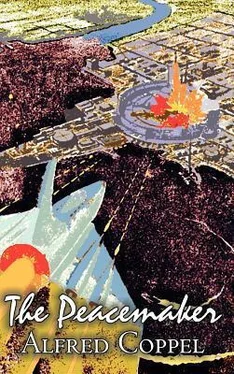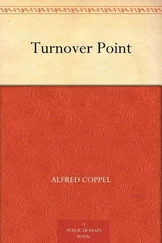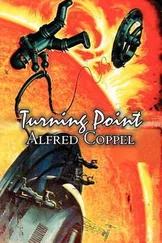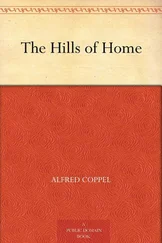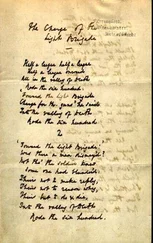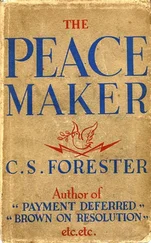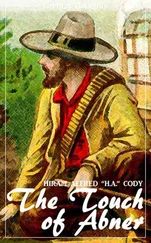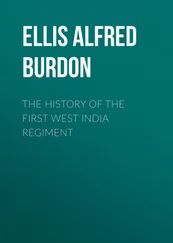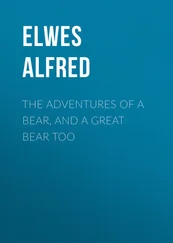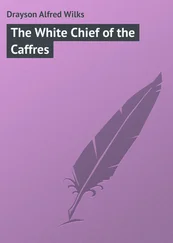Alfred Coppel - The Peacemaker
Здесь есть возможность читать онлайн «Alfred Coppel - The Peacemaker» весь текст электронной книги совершенно бесплатно (целиком полную версию без сокращений). В некоторых случаях можно слушать аудио, скачать через торрент в формате fb2 и присутствует краткое содержание. Год выпуска: 2010, Издательство: gutenberg.org, Жанр: Фантастика и фэнтези, short_story, на английском языке. Описание произведения, (предисловие) а так же отзывы посетителей доступны на портале библиотеки ЛибКат.
- Название:The Peacemaker
- Автор:
- Издательство:gutenberg.org
- Жанр:
- Год:2010
- ISBN:нет данных
- Рейтинг книги:3 / 5. Голосов: 1
-
Избранное:Добавить в избранное
- Отзывы:
-
Ваша оценка:
- 60
- 1
- 2
- 3
- 4
- 5
The Peacemaker: краткое содержание, описание и аннотация
Предлагаем к чтению аннотацию, описание, краткое содержание или предисловие (зависит от того, что написал сам автор книги «The Peacemaker»). Если вы не нашли необходимую информацию о книге — напишите в комментариях, мы постараемся отыскать её.
The Peacemaker — читать онлайн бесплатно полную книгу (весь текст) целиком
Ниже представлен текст книги, разбитый по страницам. Система сохранения места последней прочитанной страницы, позволяет с удобством читать онлайн бесплатно книгу «The Peacemaker», без необходимости каждый раз заново искать на чём Вы остановились. Поставьте закладку, и сможете в любой момент перейти на страницу, на которой закончили чтение.
Интервал:
Закладка:
Alfred Coppel
THE PEACEMAKER
Illustrated by Bob Martin
We humans are a strange breed, unique in the Universe. Of all the races met among the stars, only homo sapiens thrives on deliberate self-delusion. Perhaps this is the secret of our greatness, for we are great. In power, if not in supernal wisdom.
Legends, I think, are our strength. If one day a man stands on the rim of the Galaxy and looks out across the gulfs toward the seetee suns of Andromeda, it will be legends that drove him there.
They are odd things, these legends, peopled with unreal creatures, magnificent heroes and despicable villains. We stand for no nonsense where our mythology is concerned. A man becoming part of our folklore becomes a fey, one-dimensional, shadow-image of reality.
Jaq Merril—the Jaq Merril of the history books—is such an image. History, folklore’s jade, has daubed Merril with the rouge of myth, and it does not become him.
The Peacemaker, the chronicles have named him, and that at least, is accurate in point of fact. But it was not through choice that he became the Peacemaker; and when his Peace descended over the worlds of space, Merril, the man, was finished. This I know, for I rode with him—his lieutenant in a dozen and more bloody fights that earned him his ironically pacific laurels.
Not many now living will remember the Wall Decade. History, ever pliable, is rewritten often, and facts are forgotten. When it was gone, the Wall Decade was remembered with shame and so was expunged from the record of time. But I remember it well. It was an era compounded of stupidity and grandeur, of brilliant discovery and grimy political maneuver. We, the greedy men of space—and that includes Jaq Merril—saw it end with sorrow in our hearts, knowing that we had killed it.
If you will think back to the years immediately preceding the Age of Space, you may remember the Iron Curtain. Among the nations of the Earth a great schism had arisen, and a wall of ideas was built between east and west. Hydrogen bombs were stockpiled and armies marched and countermarched threateningly. Men lived with fear and hatred and distrust.
Then, suddenly, came the years of spaceflight and the expanding frontiers. Luna was passed. Mars and Venus and the Jovian Moons felt the tread of living beings for the first time since the dawn of time. The larger asteroids were taken and even the cold moonlets of Saturn and Uranus trembled under the blast of Terran rockets. But the Iron Curtain still existed. It was extended out into the gulf of space, an intangible wall of fear and suspicion. Thus was born the Wall Decade.
Jaq Merril was made for that epoch. Ever in human history there are those who profit from the stupidity of their fellows. Jaq Merril so profited. He dredged up the riches of space and took them for his own. And his weapon was man’s fear of his brothers.
It was in Yakki, down-canal from the Terran settlement at Canalopolis, that Merril’s plan was born. His ship, the Arrow , stood on the red sands of Syrtis Major, waiting for a payload to the Outer System. It stood among a good many like it: the Moonmaid , the Gay Lady , the Argonaut , and my own vessel, the Starhound .
We, the captains, had gathered in the Spaceman’s Rest—a tinkling gin-mill peopled with human wrecks and hungry-eyed, dusty-skinned women who had come out to Mars hoping for riches and had found only the same squalor they had left behind. I remember the look in Merril’s eyes as he spoke of the treasures of space that would never be ours, of the gold and sapphires, the rubies and unearthly gems of fragile beauty and great price. All the riches of the worlds of space, passing through our hands and into the vaults of the stay-at-homes who owned our ships and our very lives. It seemed to me that Merril suffered as though from physical pain as he spoke of riches. He was nothing if not rapacious. Greedy, venal, ruthless. All of that.
“Five of us,” he said in a hard voice, “Captains all—with ships and men. We carry the riches of the universe and let it slip through our fingers. What greater fools could there be?”
Oh, he was right enough. We had the power to command in our hands without the sense to grasp it firmly and take what we chose.
“And mark you, my friends,” Merril said, “A wall has been built around Mars. A wall that weakens rather than strengthens. A wonderful, stupid, wall….” He laughed and glanced around the table at our faces, flushed with wine and greed. “With all space full of walls,” he said softly, “Who could unite against us?”
The question struck home. I thought of the five ships standing out there on the rusty desert across the silted canal. Five tall ships—against the stars. We felt no kinship to those at home who clung to creature comforts while we bucketed among the stars risking our lives and more. We, the spacemen, had become a race apart from that of the home planet. And Merril saw this in our faces that night so long ago, and he knew that he had spoken our thoughts.
Thus was born the Compact.
Gods of space, but I must laugh when I read what history has recorded of the Compact.
“Merril, filled with the wonder of his great dream, spoke his mind to the Captains. He told them of the sorrow in his heart for his divided fellow men, and his face grew stern when he urged them to put aside ideology and prejudice and join with him in the Compact.”
So speaks Quintus Bland, historian of the Age of Space. I imagine that I hear Merril’s laughter even as I write. Oh, we put aside ideology and prejudice, all right! That night in Yakki the five Captains clasped hands over the formation of the first and only compact of space-piracy in history!
It was an all or nothing venture. Our crews were told nothing, but their pockets were emptied and their pittances joined with ours. We loaded the five ships with supplies and thundered off into the cobalt Martian sky to seek a stronghold. We found one readily enough. The chronicles do not record it accurately. They say that the fleet of the Compact based itself on Eros. This is incorrect. We wanted no Base that would bring us so close to the home planet every year. The asteroid we chose was nameless, and remained so. We spoke of it seldom aspace, but it was ever in our minds. There was no space wall, there to divide us one from the other. It was a fortress against the rest of mankind, and in it we were brothers.
When we struck for the first time, it was not at a Russian missile post as the histories say. It was at the Queen of Heaven , an undefended and unsuspecting merchantman. The records of Earth say the Queen was lost in space between Uranus and Mars, and this is so. But she was listed lost only because no Russian or American patrol found her gutted hulk. I imagine that at this very moment she hangs out beyond Pluto, rounding the bend of the long ellipse we sent her on that day we stripped her bones.
She carried gold and precious stones—and more important yet, women being furloughed home after forced labor in the mines of Soviet Umbriel. The Starhound and the Arrow bracketed her a million miles above the plane of the ecliptic near Saturn’s orbit, and killed her. We drew abreast of her and forced her valves. We boarded her and took what we chose. Then we slaughtered her men and sent them on their long voyage. That was the beginning.
The attack against Corfu was our next move. This is the battle that Celia Witmar Day has described in verse. Very bad verse.
“Corfu slumbered, gorged and proud—
While Arrow, Hound and Maid marshalled
Freedom’s might above the tyrant’s ground,
And rained down death—”
Интервал:
Закладка:
Похожие книги на «The Peacemaker»
Представляем Вашему вниманию похожие книги на «The Peacemaker» списком для выбора. Мы отобрали схожую по названию и смыслу литературу в надежде предоставить читателям больше вариантов отыскать новые, интересные, ещё непрочитанные произведения.
Обсуждение, отзывы о книге «The Peacemaker» и просто собственные мнения читателей. Оставьте ваши комментарии, напишите, что Вы думаете о произведении, его смысле или главных героях. Укажите что конкретно понравилось, а что нет, и почему Вы так считаете.
